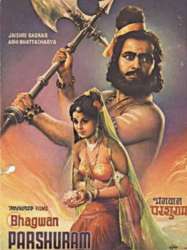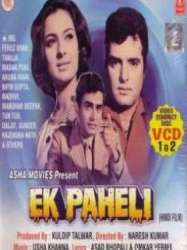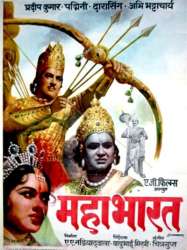Anjaan Hai Koi is a film of genre Horror directed by Babubhai Mistry with Feroz Khan
Anjaan Hai Koi (1969)

If you like this film, let us know!
Directed by Babubhai Mistry
Genres Horror
Anjaan Hai koi is a 1969 Hindi movie directed by Babubhai Mistri. The film stars Feroz Khan, Nalini and Aruna Irani. The films music is by Usha Khanna with lyrics by Asad Bhopali .
Actors
Comments
Leave comment :
Suggestions of similar film to Anjaan Hai Koi
There are 381 films with the same actors, 12 films with the same director, 9397 with the same cinematographic genres, to have finally 70 suggestions of similar films.If you liked Anjaan Hai Koi, you will probably like those similar films :

Parasmani (1963)
Directed by Babubhai Mistry
Actors Mahipal Singh, Aruna Irani, Helen Khan
Rating63%





Paras (played by Mahipal) is the son of the Senapati and is lost when his ship strikes storms at sea. Paras is then found by a poor villager, who brings him up as his own. Paras grows up and becomes an accomplished swordsman and singer. One day he encounters the princess (played by Gitanjali) and falls in love with her. His fame soon reaches the palace, and the Emperor summons him to sing for him. Pleased with his singing, the Emperor asks him for a wish, and Paras asks for the hand of his daughter. Enraged, the Emperor decides to punish Paras, but Paras escapes. Appearing defeated, the Emperor asks Paras to seek a rare gem called a Parasmani, because he is under a curse that states as soon as his daughter marries, it will be the last day for the Emperor. If Paras is can find the 'parasmani' the life of Emperor can be saved. Only then can Paras marry the princess. Parasmani is a hypothetical jewel which is considered to keep the bearer young forever. Paras agrees to this and leaves on the search with his sister and brother.

Bhagwan Parshuram (1970)
Directed by Babubhai Mistry
Themes Films based on mythology, Films about religion
Actors Helen Khan, Abhi Bhattacharya, Jayshree Gadkar, Jeevan, Sapru, Sulochana
Rating20%






Sampoorna Ramayanam (1961)
, 3h3Directed by Babubhai Mistry
Themes Films based on mythology, Films about religion
Actors Mahipal Singh, Anita Guha, Sulochana, Lalita Pawar, Helen Khan, Achala Sachdev
Rating74%






Kalyug Aur Ramayan (1987)
Directed by Babubhai Mistry
Actors Manoj Kumar, Madhavi Alladurgam, Prem Chopra, Om Prakash, Bindu, Satish Shah
Rating47%





The film is based on the Ramayana in modern environment, how his character in today. Manoj Kumar is portrayed in the film Ram Bhakta Hanuman. Hanuman come to earth and meet a miserable father Dasaratha. Dasrath distressed by her sons and daughter-in-law. How to the Hanuman Solve this problem, this is story theme.

Ek Paheli (1971)
Genres Horror
Actors Sanjeev Kumar, Feroz Khan, Aruna Irani, Tanuja, Rajendra Nath, Madan Puri
Rating66%





Dr Sudhir (Feroz Khan) returns from UK after his father's death to take care of family business. To decorate an empty section of a room, Sudhir buys an old Piano from a local shop. Weird things start happening after he buys the Piano. He meets a mysterious woman Maria (Tanuja) who tells him that while he can play Piano as he is the new owner, he should not let others play it. The first person to play the piano against her advice dies as soon as she has finished playing. Soon a long time house-servant dies and Dr Sudhir is a suspect. Complicating the situation is a local businessman Shankarlal (Madan Puri) who is planting false evidence to implicate Sudhir. Sudhir's assistant Rocky suspects Shankarlal is trying to set him up, so he concocts a plan with the Police to catch him red handed. Sudhir's friend and his wife visit him and they record Maria's song and they are shocked to see that the voice wasn't recorded. Sudhir visits Maria's house and while returning he is attacked by Maria's father (Jeevan). When he regains consciousness he is at his home and his friends tell him he was in a car accident. He goes back to the spot to retrieve his car where Shankarlal and his secretary Rosy (Aruna Irani) plan to ambush and kill him. Sudhir follows Rosy who is dressed as Maria. However Rocky reaches in time with the Police and gets Rosy arrested . As she confesses the plot, Shankarlal kills her and flees . He is captured by the police with the help of Sudheer. Sudheer friend was listening to a record that he bought from the same shop where Sudheer bought the Piano. The voice is that of Maria and his friend claims this is a 20-year-old recording and Maria cannot be a young woman. Sudhir rushes to the music shop to find the owner dead. He goes to Maria's church where he finds out Maria has been dead for 20 years and her spirit has been haunting the graveyard. She committed suicide because her father sold her favorite Piano in exchange of 1 month of free alcohol. Sudhir runs after Maria's spirit and falls from a mountain. He dies and his spirit is united with Maria.

Hatim Tai (1990)
, 2h5Directed by Babubhai Mistry
Genres Drama, Fantasy, Romance
Actors Jeetendra, Sangeeta Bijlani, Satish Shah, Sonu Walia, Amrish Puri, Alok Nath
Rating58%





Hatim Tai is the legendary chief of a small district. He is Known for his generosity, wisdom and courage. Hatim learns that one of the local girls in his town has a curse put on her - whomever marries her, the husband will die. In order to break this curse, Hatim agrees to take part in 7 quests. All 7 quest are dangerous but have a moral. If he completes all 7 then he will also release the fairy who has turned into a stone. Hatim and his friend (Satish Shah) embark on a fun but dangerous quest to break the curse once and for all.

Kachche Heere (1982)
Directed by Narender Bedi
Actors Feroz Khan, Reena Roy, Danny Denzongpa, Aruna Irani, Shakti Kapoor, Helen Khan
Rating55%






Muqabala (1942)
, 2h12Directed by Babubhai Mistry, Nanabhai Bhatt
Actors Fearless Nadia, Yakub, Agha
Rating58%





Madhuri and Rani (Baby Madhuri) are twin sisters whose parents, Seth Dinanath and Radha, are shot in front of them by their mother’s rejected suitor Shivnath (Dalpat). The mother dies and the father is kept prisoner by Shivnath who also kidnaps Rani. Madhuri is found wandering by a rich man Rai Bahadur, who takes her home and adopts her. Several years pass and Madhuri (Fearless Nadia) is enjoying her life in luxury. She has a dog called Gunboat who accompanies her everywhere. She finds out about her parents and sees Rani dance at a nightclub. She vows vengeance and soon the sisters along with two friends (Yakub and Agha) fight their way to the gangster and free their father.

Mahabharat (1965)
, 2h43Directed by Babubhai Mistry
Origin Inde
Genres Drama, Fantasy, Action, Adventure
Themes Films about religion
Actors Abhi Bhattacharya, Sivaji Ganesan, Pradeep Kumar, Dara Singh, Padmini Ramachandran, Jeevan
Rating70%





Le film reprend les principaux épisodes de l'épopée, à savoir la lutte entre les cinq frères Pandava et les cent frères Kaurava, sans pouvoir en relater les origines ni tous les détails.
 Connection
Connection





